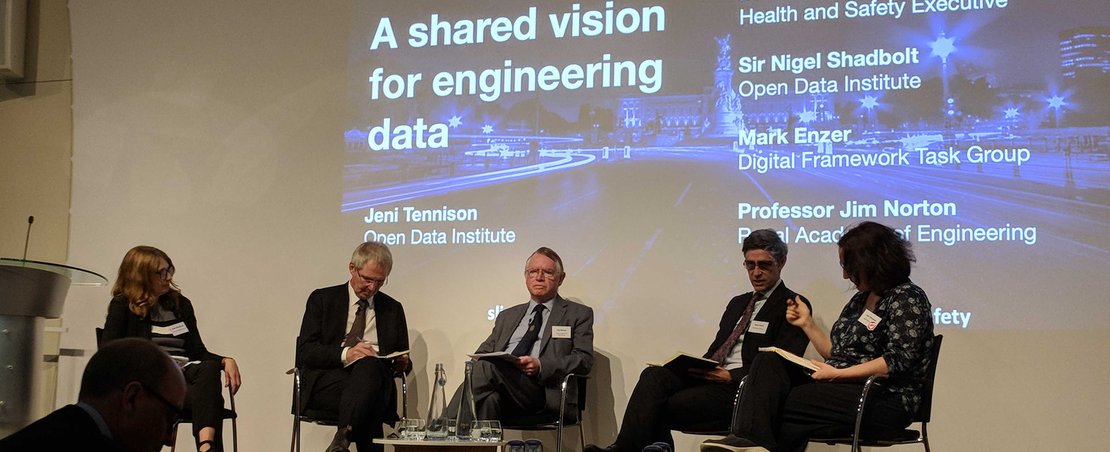
This month, as part of our project with the Lloyd’s Register Foundation, we convened people from across the engineering sector to develop a shared vision and approach to publishing and using engineering data for the public good.
Our goal for this event was to start a wider conversation with the community around the challenges, opportunities and key enablers that will allow us to move towards a future where we are using data to increase safety and resilience in our workplaces, on our roads and transport networks, and the broader built environment.
The event was hosted by the Lloyd’s Register Foundation and the Royal Academy of Engineering with the support of the Alan Turing Institute, the Health and Safety Executive and Cambridge University Press, We had more than 70 attendees from across the engineering, transport, energy and built environment sectors, including researchers, policy makers, engineers, researchers and data specialists.The day was structured around a mixture of panel sessions, where we heard from industry leaders about the economic and social benefits of developing a stronger engineering data infrastructure, lightning talks from projects that are already progressing this vision and roundtables where we encourage the community to share insights and build connections.Some of the key themes that we drew out from the day included:
- the need for a mixture of both regulatory changes and voluntary initiatives, such as codes of practices to drive changes in how the sector is currently collecting, managing and sharing data. Looking at our experience with sector change programmes in Open Banking and OpenActive we can see the benefits and need for a mixture of approaches
- the importance of clear leadership with the sector and individual organisations to help drive the necessary culture change that will encourage data sharing.
- the need to build trust in how data is being accessed, used and shared will be important for organisations feeling confident in sharing data with others. This echoes some of our early user research which highlighted some of the commercial barriers to data sharing. Models like HiLO illustrate how independent stewardship of data can help to build trust and unlock value
- the importance of clear businesses cases that will encourage commercial organisations to share data they have collected in ways that could create efficiencies or increase revenue whilst also delivering value for society
- the need to invest in creating a stronger data infrastructure including a broader adoption of standards and best practices, the need to invest in maintaining and opening the key geospatial and other foundational data assets that will enable data to be shared and integrated across the sector
- highlighting that some of the current project delivery approaches in the construction and infrastructure sectors discourage collaboration and shared stewardship of data. Initiatives like Project 13 were identified as evidence of broader digital transformation that may help address these issues
- the need to think globally and articulate a clear vision for the future, while there are a number of specific challenges to driving change in the UK, there is a need to identify opportunities to scale innovation to other countries where the cultural, economic, social and policy contexts are very different
We have published the videos from our panel discussions and talks on our YouTube channel, to allow a broader community to benefit from the insights.
Our project team is drawing insights from the day and our broader research to develop a manifesto that will support and encourage further progress on this vision. The manifesto will be accompanied by a broad set of recommendations for different stakeholders in the engineering data ecosystem.
If you’d like to be involved in the development of that manifesto then please get in touch. We are keen to get input and endorsement on the manifesto and the accompanying recommendations from a wide range of organisations.
If you have any additional insights from watching the recorded panel sessions, or response to this blog post then drop us a line or tweet using the #dataforsafety hashtag.